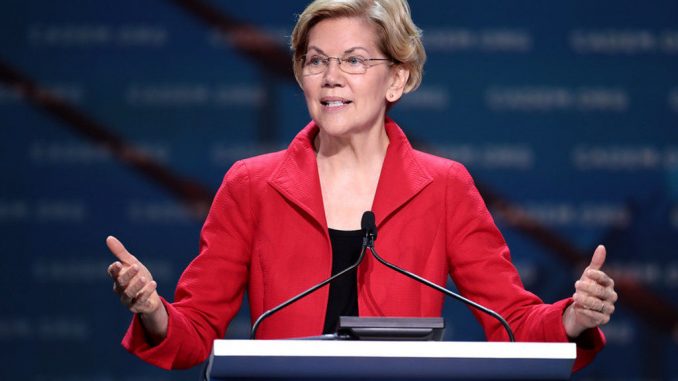
When news broke that Iranian Gen. Qassem Soleimani was killed, Sen. Elizabeth Warren thought she was striking a careful balance by acknowledging that he was a “murderer” while also attacking the decision to kill him as “reckless.”
Soleimani was a murderer, responsible for the deaths of thousands, including hundreds of Americans. But this reckless move escalates the situation with Iran and increases the likelihood of more deaths and new Middle East conflict. Our priority must be to avoid another costly war.
— Elizabeth Warren (@ewarren) January 3, 2020
But even acknowledging that the man responsible for hundreds of American deaths and for orchestrating the Iranian strategy in the Middle East was a bad guy was too much for the Left to handle. Liberals quickly jumped on Warren’s comments, attacking her for employing the language used by hawks to justify war.
Fading in polls and dipping in fundraising ahead of the Iowa caucuses, Warren has little room to alienate the Left. So she then released a follow-up statement stripped of any criticism of Soleimani, and instead focused exclusively on attacking President Trump for an attack that she rebranded as an “assassination.”
Donald Trump ripped up an Iran nuclear deal that was working. He’s repeatedly escalated tensions. Now he’s assassinated a senior foreign military official. He’s been marching toward war with Iran since his first days in office—but the American people won’t stand for it.
— Elizabeth Warren (@ewarren) January 3, 2020
First, this was not an assassination. This was a lawful military strike conducted in a war zone in which the United States is legitimately established. Soleimani was an enemy commander who had acted against the U.S. repeatedly, and the U.S. was well within its rights to take him out. The only act of war was Iran’s by putting one of its commanders in Iraq to help plan and direct attacks against U.S. troops, which was Soleimani’s intent.
Labeling Soleimani’s death an assassination is not only dishonest; it’s damaging — not to Trump, as Warren certainly intended, but to the U.S.’s foreign policy interests as a whole. As commander in chief, Trump has the right and the responsibility to direct the military and defend this nation’s interests. That leading politicians are openly questioning, and thus undermining, that authority is ridiculous, though unsurprising. This is Trump, after all, and most Democratic politicians would do or say anything to send a few jabs his way. (Of course, few of these Democrats, if any at all, were willing to say the same of President Barack Obama when he ordered the attack on Osama bin Laden, or when he unilaterally pushed through the Iran nuclear deal despite Congress’s opposition).
But Warren had another reason for doubling down. She is actively trying to balance the Democratic establishment’s interests while kowtowing to the progressive Left. Her first statement was geared toward the former, and her follow-up was clearly written with the progressives in mind. It was an unequivocal denouncement of the U.S.’s status quo posture toward the Middle East, one that requires hefty defense spending and a proactive military presence. The Left wants neither.
The Democratic establishment, on the other hand, is still hesitant to cut off all ties in the region. Recall, for example, Congress’s reaction when Trump announced the U.S. would pull out of Syria. The Democratic Party’s reaction likely had more to do with the decision-maker than the decision itself. Still, it revealed that few are willing to wholly abandon the U.S.’s strategic position in the Middle East.
Warren is trying to appeal to both sides of the Democratic Party, as she has on many other issues throughout her campaign. But recent polls indicate that her balancing act isn’t working, and that’s unlikely to change.
*story by The Washington Examiner